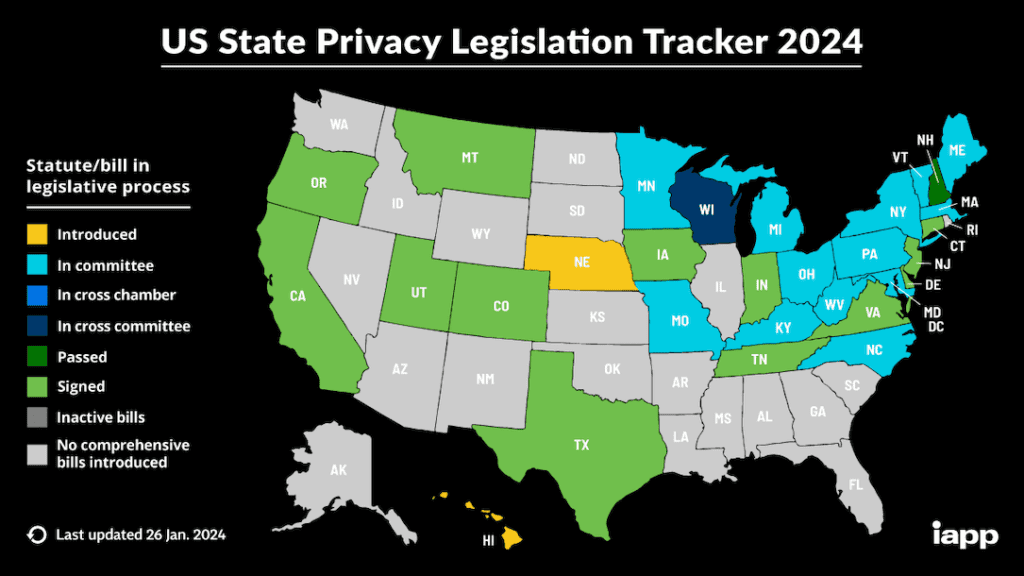In the evolving world of data privacy, not one but two states have recently made waves. Joining the New Jersey groundbreaking legislation, SB 332, New Hampshire has also stepped into the spotlight with its own consumer privacy law. This development further alters the data privacy landscape across the United States.

Imagine a small business owner in New England, now facing not just one, but two sets of data privacy regulations. This scenario is quickly becoming a reality as more states, like New Hampshire, introduce their own laws. These legislations, while similar in their aim to protect consumer privacy, bring their unique nuances to the table.
New Hampshire’s law, like New Jersey’s, focuses on consumer rights and transparency. However, it introduces its specific thresholds and definitions that differ from New Jersey’s approach. This indicates a trend: states are not just following a template but are tailoring their laws to their specific contexts.
The move by both New Jersey and New Hampshire is being closely watched by other states. Already, California and New York have their privacy laws, and it is likely that more will join this movement. The impact is national – a complex, multi-layered privacy regime is emerging in the U.S.
For the average American, these laws mean more control and reassurance over their personal data. For businesses, it’s a call to action to implement robust data governance and adaptable privacy policies.
The question of a comprehensive federal data privacy law remains open. As states like New Jersey and New Hampshire take the lead, they pave the way for a possible national approach. But until then, the landscape remains a mosaic of state-specific regulations.
In conclusion, these developments in New Jersey and New Hampshire signify a pivotal shift. They mark an era where data privacy is not just a concern of a few but a priority for all. As we witness this transformation, let’s continue advocating for strong privacy protections and a balanced approach to technology and personal rights.
For more detailed analysis of the specific laws and their implications, refer to authoritative sources on state data privacy legislation.
Discussion
Related Posts
If you enjoyed reading this, please explore our other articles below:



